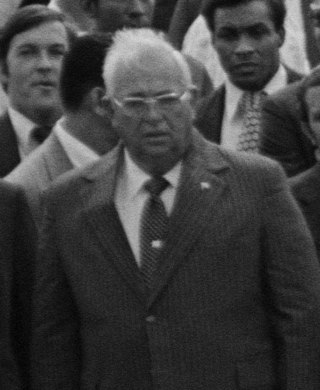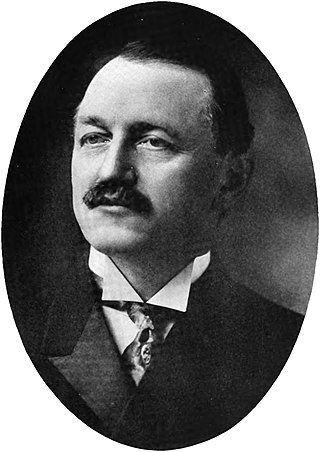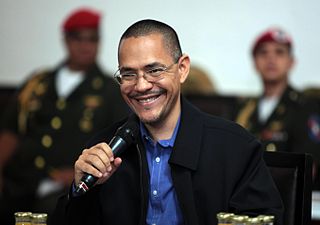Related Research Articles

Panama, officially the Republic of Panama, is a transcontinental country spanning the southern part of North America and the northern part of South America. It is bordered by Costa Rica to the west, Colombia to the southeast, the Caribbean Sea to the north, and the Pacific Ocean to the south. Its capital and largest city is Panama City, whose metropolitan area is home to nearly half the country's 4 million people.

Manuel Antonio Noriega Moreno was a Panamanian dictator, politician and military officer who was the de facto ruler of Panama from 1983 to 1989. An authoritarian ruler who amassed a personal fortune through drug trafficking operations, he had longstanding ties to United States intelligence agencies before the U.S. invasion of Panama removed him from power.

The Panamanian Public Forces are the national security forces of Panama. Panama is the second country in Latin America to permanently abolish standing armies, with Panama retaining a small paramilitary security force. This came as a result of a U.S. invasion that overthrew a military dictatorship which ruled Panama from 1968 to 1989. The final military dictator, Manuel Noriega, had been belligerent toward the U.S. culminating in the killing of a U.S. Marine lieutenant and U.S. invasion ordered by U.S. President George H. W. Bush.

Big stick ideology, big stick diplomacy, or big stick policy refers to President Theodore Roosevelt's foreign policy, "speak softly and carry a big stick; you will go far". Roosevelt described his style of foreign policy as "the exercise of intelligent forethought and of decisive action sufficiently far in advance of any likely crisis". As practiced by Roosevelt, big stick diplomacy had five components. First, it was essential to possess serious military capability that would force the adversary to pay close attention. At the time that meant a world-class navy; Roosevelt never had a large army at his disposal. The other qualities were to act justly toward other nations, never to bluff, to strike only when prepared to strike hard, and to be willing to allow the adversary to save face in defeat.

The Hay–Bunau-Varilla Treaty was a treaty signed on November 18, 1903, by the United States and Panama, which established the Panama Canal Zone and the subsequent construction of the Panama Canal. It was named after its two primary negotiators, Philippe-Jean Bunau-Varilla, the French diplomatic representative of Panama, and United States Secretary of State John Hay.

The United States invasion of Panama, codenamed Operation Just Cause, lasted over a month between mid-December 1989 and late January 1990, ten years after the Torrijos–Carter Treaties were ratified to transfer control of the Panama Canal from the United States to Panama by January 1, 2000. The invasion took place during the presidency of George H. W. Bush.

The Panama Canal Zone, also simply known as the Canal Zone, was an unincorporated territory of the United States, located in the Isthmus of Panama, that existed from 1903 to 1979. It was located within the territory of Panama, consisting of the Panama Canal and an area generally extending five miles (8 km) on each side of the centerline, but excluding Panama City and Colón. Its capital was Balboa.

The Panama national football team represents Panama in men's international football and is governed by the Panamanian Football Federation. The team represents all three FIFA, CONCACAF and the regional UNCAF.

Demetrio Basilio Lakas Bahas was the 27th President of Panama from December 19, 1969 to October 11, 1978.

Rafael Reyes Prieto was a Colombian politician and soldier who was the Chief of Staff of the Colombian National Army and President of Colombia (1904–1909).

Daniel Dodge Frisbie was an American businessman and politician.

Norman Edward Mack was editor and publisher of the Buffalo Times. He was also Chairman of the Democratic National Committee from 1908 to 1912.
La Prensa is a conservative Panamanian newspaper founded in 1980. Established by I. Roberto Eisenmann Jr. during a period of military dictatorship, La Prensa built an international reputation as an independent nationalist voice, and has been described by some admirers as "Panama's leading opposition newspaper" and its newspaper of record.
Cecilio Alfonso Waterman Ruiz is a Panamanian professional footballer who plays as a striker for Everton and the Panama national team.
Tomás Altamirano Duque was a Panamanian politician who served as First Vice President of Panama from 1 September 1994 to 1 September 1999, under President Ernesto Pérez Balladares.

Ernesto Emilio Villegas Poljak is a journalist, politician, and writer from Venezuela.

The Panama Papers are 11.5 million leaked documents that were published beginning on April 3, 2016. The papers detail financial and attorney–client information for more than 214,488 offshore entities. The documents, some dating back to the 1970s, were created by, and taken from, former Panamanian offshore law firm and corporate service provider Mossack Fonseca, and compiled with similar leaks into a searchable database.
Jake Bernstein is an American investigative journalist and author. He previously worked with the International Consortium of Investigative Journalists. During a 25-year career, he has reported on the civil war in Central America, industrial pollution in Texas, political corruption in Miami, system-crashing greed on Wall Street, and the secret world of offshore accounts and money laundering. He has written travel pieces, reviewed movies and books, and has appeared as a radio and TV journalist.
SS Joseph M. Medill was a Liberty ship built in the United States during World War II. She was named after Joseph M. Medill, the co-owner and managing editor of the Chicago Tribune, and Mayor of Chicago after the great fire of 1871.
Andrés Alejandro Hernández Hernández is a Venezuelan professional footballer who plays as a defensive midfielder.
References
- ↑ "Panama: U.N. Diplomat in Action". Time . May 24, 1964. Accessed September 14, 2011.
- 1 2 Amnesty International Report, 1991. p. 3.